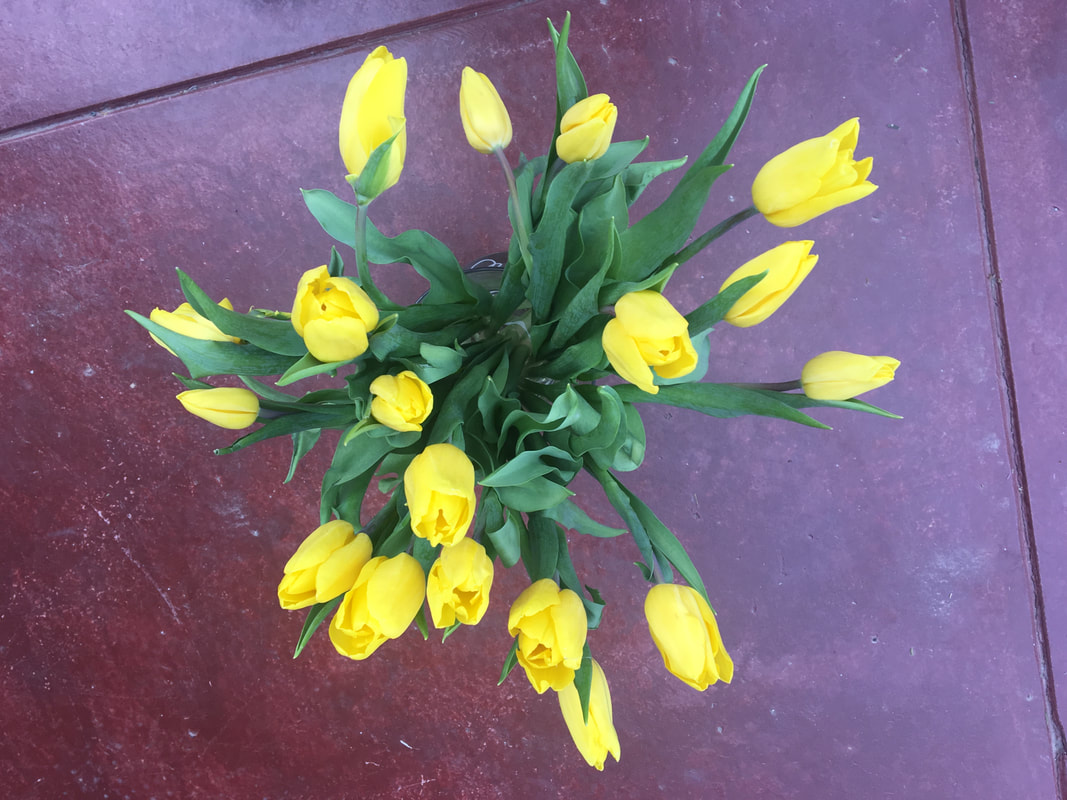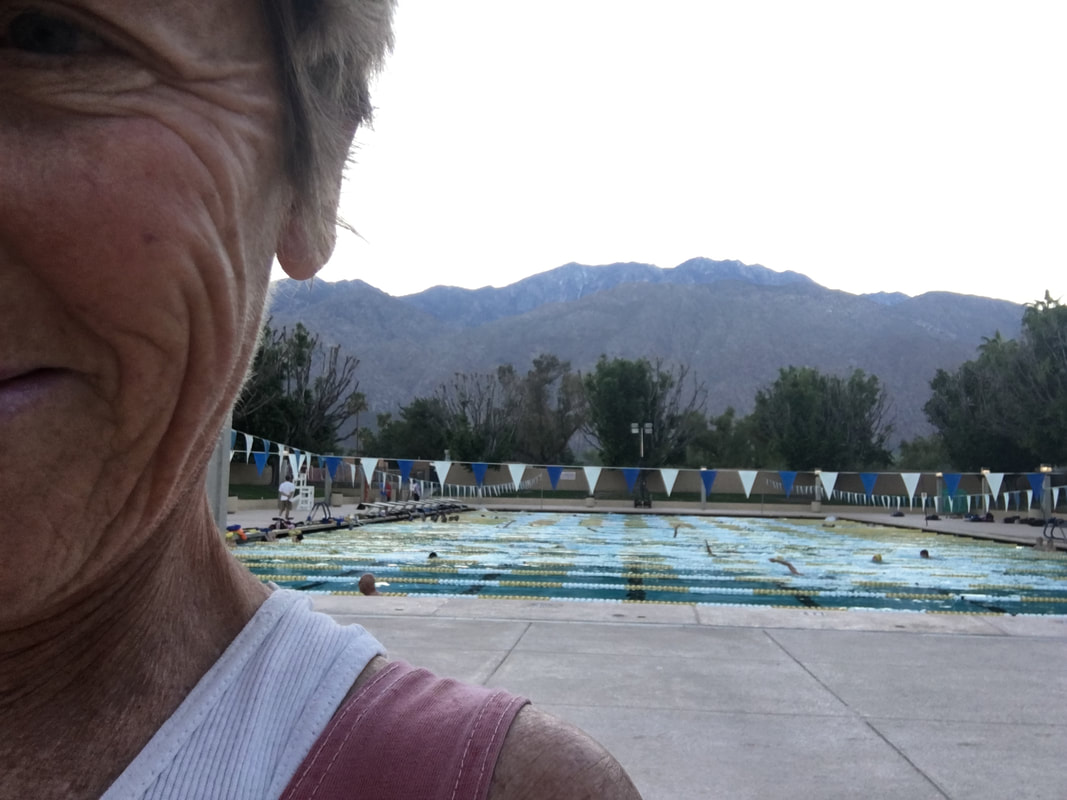|
Her name is Kathleen. At least that’s what her nametag says. Her hair changes color every time I go in. This week it’s the color of vanilla pudding. Her voice could crack a million clay pots. It could scare the Halloween candy off the shelves. It’s the kind of voice you hear at the end of the bar in a Western saloon, not the voice that goes with a martini glass in the cocktail lounge.
Everyone is hon or sweetheart, followed by “You have a nice day.” I have to admit when I leave I’m already having a nicer day than when I came in. It’s a short list today: vitamins, Tylenol, hot water bottle, Ace bandages. These are not the purchases of youth. This is not a shopping spree. It’s Walgreens at its utilitarian best, but there’s nothing utilitarian about Kathleen at the cash register. Every Walgreens needs a Kathleen. Every store does. She’s the perennial cheerleader for upbeat human relations. She can guess when you want a bag and when you don’t, and she knows exactly who’s in need of a personal comment about the nail polish they’re buying, or the acne medicine. She knows I’m happy not to have my purchases scrutinized, but the woman in line ahead of me longs for interaction. Kathleen gives her a few seconds of extra attention, asks a question or two, and plops the gum and condoms neat-as-you-please in the right-size plastic bag. “Now, you have a nice day, sweetheart,” she says. I’m sure she means it. How do these good wishes, repeated a hundred times a day, remain sincere? Because that’s the thing. I have a good nose for platitudes, and Kathleen is at the other end of the spectrum. She beams sincerity. I’ve been in Walgreens at every time of day, early in the morning, at midday, and late in the afternoon, and her well-wishes always feel real. Mudita is a Sanskrit word meaning sympathetic joy. All healthy humans are born with a capacity for it but not all of us exercise it, and even fewer of us work to increase our agility with it. Mudita is a muscle-like thing that can be strengthened with practice. I think the reason we don’t practice it is because we feel someone else’s joy must come at the price of our own. It’s a perception of scarcity when in fact mudita recognizes abundance. Kathleen’s great skill is to connect to the smallest shred of joy in her customers and mirror it for them so it becomes visible and accessible to them, as well as to the next person in line. She rejects what’s essentially a capitalist model, the model of competition for limited resources, and turns Walgreens into a vortex of joy. If I’m getting carried away here it’s because I’ve been thinking a lot about mudita in my own life, and I’m looking for models. I think professional jealousy plagues most of us, and I’m no exception. Sometimes that’s useful, but most of the time it poisons the well. I work hard to extend mudita to those of my tribe who experience “success.” That is, a place with regard to their work that brings them fulfillment, often involving some gratifying external recognition. When I am in that place with my own work this is easy, but when I am not I need a good talking to. Kathleen is a master of mudita and is probably not even aware of her skill. I don’t know if she’s had to deal with professional jealousy at the cash register, but somehow in her life she’s absorbed the understanding that joy is a limitless commodity. We carry it around in the equivalent of our marsupial pouch but we forget it’s there, and she reaches in and pulls it out and places it in the bag with the gum and condoms. Then comes the litany: “You have a nice day, sweetheart.” And before we know it, we do.
7 Comments
Air temperature 59 degrees and I’m standing around in my bathing suit on the pool deck. I have the place to myself today, no surprise. The snorkel guy, the sidestroker, the two I call the Tsunami Sisters who eat up the pool with their dolphin kicks—they’ve taken their swimming inside for the season. It’s just me and the clouds and the sun and the shadows. And the passing rain. And the pool itself, a turquoise gem this afternoon. The raindrops stipple its surface and I make a joke, say to myself, Better get in before you get wet, and in I go.
The pool is somewhere between 79 and 82 degrees, so if I stay underwater and keep moving I’m warm enough. But I’m a mammal, an air-breather, though when I dream about swimming, as I often do, I can go without air forever. My face and arms are chilly as I swim the laps that bring me to a mile, and today the wind is up. The trees around the pool are bending, their leaves quaking, and a fleeting pattern of disturbance flits across the water. I wear ear plugs to keep the pool out. There’s joy in a silent world and my eyes get sharper. I swim for the pleasure of the movement, for the enveloping touch of the water, but maybe most of all because I find pools so darn beautiful. Their color, their ability to hold and reflect light, their undulation that reminds me of a large body swaying, swaying and embracing. Sometimes I paddle along, my eyes right at the waterline, so I can see both the world above and the world below. I can feel the world of air on my back and the wet world of water on my belly. I can’t say why but bridging those elements, even for a moment, makes me happy. The world of limbs and lungs meets the world of fins and gills. Unchambered is the feeling. A floaty lightness. There’s a spot a few inches above the bottom of the pool where you can feel weightless. It’s a different flavor of weightless than the kind you find on the water’s surface. This is dreamlike, a feeling of needing no breath, no movement, no job, no family. It’s a place without human things in it, no human needs or wants or concerns. I go there every time I get in the pool, and recently I’ve come to understand it may be a dress rehearsal for death. It may be a place where we can let go—of everything. Of body and mind. Of all that we desire, everything we set our sights on, and everywhere our ambition leads us. It is an absolutely peaceful place. Is this why we swim? To stay close to this peaceful place? A few inches above the bottom is where you’ll find it, the sweet spot where we are able to die, where death isn’t other anymore. The elements that cluster and clog us with joy or sorrow, they’re gone, and what’s left is what we’ve always thought of as death, a foreign land, a separate entity, but in fact it’s just what remains when the things that make us us are no longer there. |
AboutA place to discuss writing or anything on your mind. All visitors are invited to join the conversation by commenting on posts, asking questions, and joining the newsletter below for even more opportunities to connect and converse! Archives
April 2023
Categories |



 RSS Feed
RSS Feed